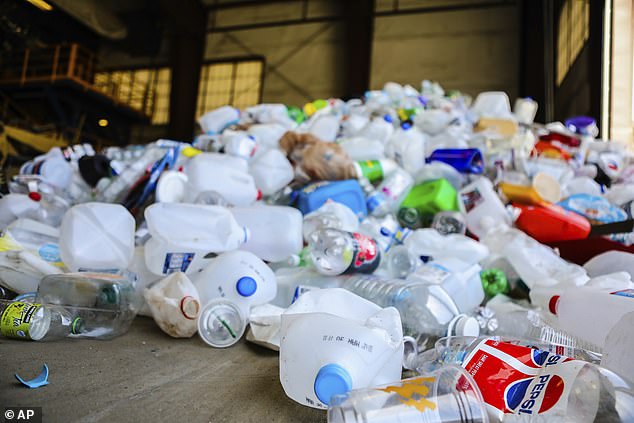New Jersey households are reusing less of their loss than they did a couple of years back on account of a decrease in market interest for certain materials, China’s ongoing choice to quit reusing plastic and different materials from abroad, and an expansion in the pollution of recyclables as a result of collections that blend various materials.
Presently, the decrease in reusing of paper, cardboard, glass, plastic, aluminum and different materials has provoked enactment that would set up a statewide committee to discover markets for recyclables and stop them winding up in landfills.
The Senate’s Environment and Energy Committee this week joined two bills that were intended to break down the state’s reusing difficulties and prescribe methods for reusing increasingly recyclable materials.
The subsequent bill (S-3939/3-944) released by the board of trustees on Nov. 18, requires the production of a Recycling Market Development Council which would write about prescribed procedures to diminish the defilement of recyclables, and suggest methods for stimulating demand for the materials.
Advisory group administrator Sen. Bounce Smith (D, Middlesex and Somerset), said he trusts the gathering will discover an answer for the reusing emergency that has extended since China quit taking the remainder of the world’s materials in January 2018.
“Recycling is in big trouble in New Jersey just like it is all over the world,” Smith said in a meeting. “Once the Chinese said, ‘We’re not taking any more of your crapola,’ the whole world was in trouble.”
Reusing of household waste is down
Smith said the proof on the state’s present reusing rate is narrative as opposed to factual, taking note of that the rate changed generally between municipalities. Jeff Tittel, executive of the New Jersey Sierra Club, said just regarding 37% of New Jersey’s family unit squander is presently reused, down from over half during the 1990s. At the Department of Environmental Protection, the latest information is for 2016, a representative said.
The board would examine how to utilize more recyclables in new items; how to support the utilization of materials with reused substance, and whether there are methods for animating interest for items that are made with reused materials.
It would likewise prescribe methods for decreasing the contamination that outcomes in recyclable materials turning out to be refuse, and recognize whether laws or guidelines need to change to actualize the recommendations.
On the off chance that at long last affirmed by legislators, the committee would comprise of the magistrate of the DEP and the state Treasurer, in addition to six individuals from the general population, three of whom would have reusing aptitude. One would be an individual from the Association of New Jersey Recyclers, a not-for-profit promotion group.
One of the first bills proposed setting up a reusing team to address “changing market conditions” and inspect the difficulties looked by neighborhood experts in gathering and preparing recyclables.
Some recyclable material isn’t really reused in light of the fact that it gets blended in with junk thus can’t be reprocessed, Tittel said. He refered to a food waste program in Lambertville that is being upset by individuals tossing junk or cigarette barges in on the food containers after they are left in the city for assortment.
Reduce, reuse, repurpose
While the bill’s supporters are anxious to discover new markets for recyclables, they would incline toward less of the materials to manage in any case, and that would require instructing customers to eliminate things like water jugs or plastic straws.
“We need to first reduce, reuse, repurpose and then recycle,” Tittel said.
Smith said the proposed reusing council reflects the need to resuscitate reusing by invigorating markets for the materials as opposed to attempting to send out the issue. China’s activity has constrained different nations to acknowledge the way that they should deal with their own recyclables, he said.
In New Jersey, regions are confronting higher bills for preparing recyclables, and wind up dumping some of them in expanding landfills, he said. To end that procedure, the reusing board will concentrate the state’s best personalities on coordinating the recyclables with business sectors that can utilize them yet which haven’t yet recognized those sources, Smith said.
The bill is presently gone to the Senate Appropriations Committee, where Smith appraised its odds of endorsement at 50-50. Be that as it may, regardless of whether it comes up short there, Smith said he will reintroduce it in the following administrative session.
Sen. Linda Greenstein (D-Mercer and Middlesex), one of the patrons, said numerous regions have experienced a breakdown in business sectors for plastics and different recyclables, and are currently paying to discard them in landfills instead of utilizing them to raise income.
The nearby difficulties are made harder, she stated, by individuals’ disarray over what they can reuse, and what must go in the waste.
“I think what’s happening is that people are either not recycling, or they’re not recycling properly,” Greenstein said.
For instance, numerous individuals are uncertain whether they are permitted to reuse particular sorts of plastics, she said. “I think there’s ignorance out there on what to recycle and how to recycle.”
Disclaimer: The views, suggestions, and opinions expressed here are the sole responsibility of the experts. No Graph Daily journalist was involved in the writing and production of this article.



